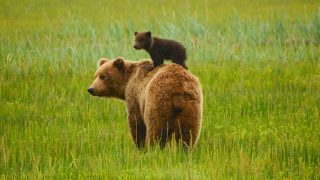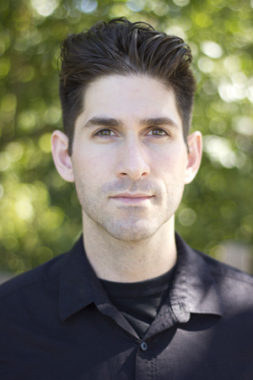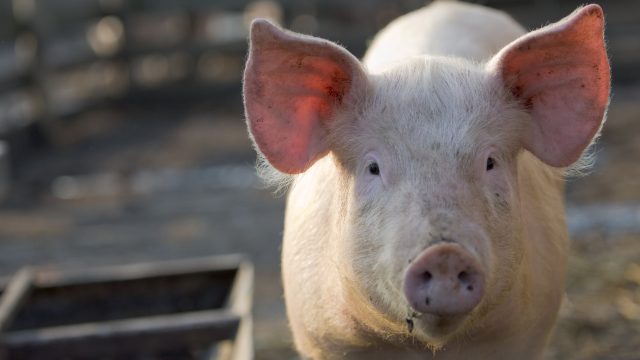
Where Are They Now? Matthew Liebman
Matthew Liebman, Stanford Law ’06, has been with the Animal Legal Defense Fund for almost ten years. He started as a staff attorney and is now Director of Litigation. He helps manage all of the Animal Legal Defense Fund’s civil litigation, including filing and litigating cases to rescue animals from suffering and incrementally advance their interests through the legal system.

When did you take an interest in animals and, specifically, helping animals?
Like most people, I’ve always had a soft spot for animals, but my real awakening to animal issues traces back to a little parrot named Chaplin. When I was 14, I got Chaplin as a pet and he became my constant companion, always on my shoulder or hiding out in my sleeve. When I got Chaplin the pet store told me that in addition to his normal diet of fruits, veggies and bird pellets, I could feed him whatever I was eating – including beef and chicken. It struck me as strange that this little bird would eat a cow, who he couldn’t possibly kill in the wild; and it struck me as even stranger that he could eat a chicken, whose drumsticks weren’t all that different from his own little green legs. I had an epiphany that if Chaplin shouldn’t be eating these animals, maybe I shouldn’t be either. After all, how could I justify eating a cow whom I couldn’t personally kill or a chicken whose anatomy so closely mirrored my new friend’s? I went vegetarian soon after that. In college, I read the first chapter of Peter Singer’s Animal Liberation in a philosophy class, which helped crystallize a lot of my intuitions on animal ethics. I majored in philosophy and continued to focus on animal ethics. I went vegan in 1999.
What did you study in undergrad?
I double-majored in philosophy and an honors liberal arts program called Plan II at the University of Texas at Austin.
What got you interested in pursuing a law degree?
I wasn’t interested in law until after I graduated from college. I thought I would probably go to grad school in philosophy and continue to study animal ethics, but at some point, I decided I could probably achieve more tangible progress for animals with a law degree and that practicing law would suit my skills.
Where did you go to law school?
Stanford Law School.
What was your time in the Student Animal Legal Defense Fund (SALDF) like?
When I got to Stanford Law School, we didn’t have a SALDF chapter, so I made it my business to start one. Three friends who were fellow animal sympathizers and I started the chapter in earnest the spring of our 1L year, then it blossomed into a pretty well-received student group for my 2L and 3L years. We hosted a lot of events, including guest speakers, panels at progressive law conferences, film screenings and protests over Stanford’s animal research programs. We also helped add an animal law course to the curriculum. I was also able to attend the National Animal Law Competitions at Harvard Law School where my partner and I won first place at the 2006 Animal Law Moot Court Competition, which is presented by the Center for Animal Law Studies at Lewis & Clark in collaboration with the Animal Legal Defense Fund.
How did being involved with SALDF affect you?
SALDF played a significant role in both my education and my career. I wouldn’t be where I am today without my participation in Stanford’s SALDF chapter. Being in SALDF helped me plug into the national animal law community through conferences and relationships with the Animal Legal Defense Fund’s luminaries like Joyce Tischler, Steve Wells, Nicole Pallotta and Bruce Wagman. Bruce taught my animal law class and as we bonded through that class, he helped mentor me, ultimately convincing the Animal Legal Defense Fund to bring me on as a one-year fellow. They haven’t been able to get rid of me since.
What do you hope to accomplish in your work for animals?
Ultimately I hope to help create the legal, political and material circumstances in which animals can flourish as the kinds of beings they are, free of human-imposed suffering.
What advice do you have for law students who are considering a career in animal law?
Think long and hard about what you think the law can do for animals and how best to achieve that end. Do everything you can to make yourself known to the animal law community, which is surprisingly small and intimate. It’s also very welcoming, so attend conferences, introduce yourself to people whose work you find interesting and stay abreast of developments in the field.
How We Work
Recent News
-
Court Rules Texas Food Label Censorship Law is Unconstitutional
The law imposed unclear and vague standards on plant-based meat producers that violate the First AmendmentJanuary 29, 2026 Press Release -
Defend the Big Cat Public Safety Act
Urge your federal representative to oppose H.R. 7159, which aims to undo protections established by the Big Cat Public Safety Act, including by creating exemptions allowing direct contact with big cats, such as cruel cub petting. -
State Animal Protection Laws Ranked: Oregon is #1, North Dakota #50
20th edition of ALDF state and territory ranking report highlights major advancements & trends in animal protection across the U.S.January 27, 2026 News



